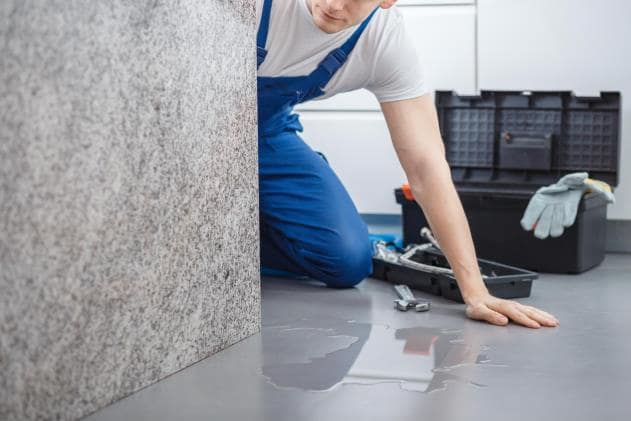How many of you love to be surrounded by water? Spending a relaxing day on a lake or river might be your favourite vacation idea.
Now, how many of you would love to be surrounded by water in your own home? Leaking pipes and the floods that follow are never fun things to deal with.
Though it’s possible for pipes to suddenly burst, you can avoid many flood situations by being aware of how to detect a water leak at home. Small leaks often preclude the diluvial forces that destroy your flooring. Here’s how to keep an eye out.
Detecting a Water Leak 101
Your first indication of a water leak might be an unusual increase in your water bills although your usage hasn’t changed. If you suspect a leak, the first thing to do is check out the water meter.
Ensure that you’ve turned off everything that uses water inside your home but don’t shut off the main water valve. Take a look at your meter. Meters vary but typically you’ll see a series of dials, a spinning wheel, or a digital readout with numbers.
Snap a picture of the meter, wait 10-15 minutes, then snap a second picture to compare. Have the dials moved? Have the numbers changed? Is the wheel still spinning?
All of these are indications that there is a leak somewhere in your plumbing system.
Pinpointing Your Water Leak
Testing the meter only confirms the presence of a leak, it doesn’t tell you where it is. To figure this out, you’ll have to keep a sharp eye out for these common signs.
Signs of an Outdoor or Underground Water Leak
Underground leaks outside the home typically make themselves known through wet dirt. Unexplained muddy spots, puddles, or particularly green patches of lawn can all be an indication of a leaky pipe. These signs can take a while to appear unless the pipe is leaking a lot.
Signs of an Indoor Water Leak
Things aren’t much better indoors. Of course, catastrophic leaks will show up as large puddles or a whole pond on the bathroom or kitchen floor.
But smaller leaks are more subtle. Watch for discoloured walls and ceilings and pay close attention to how your home smells. Moist areas can begin to grow mould within 24-48 hours of getting wet, producing a musty, mouldy odour.
Professional Detection Help
Sometimes, you might not be able to find the source of that darn leak. If you suspect a leak but can’t find it, don’t let it sit around getting worse. Call a professional to help you find the leak before it gets worse and causes a flood.
Plumbers use sophisticated leak detection technology to find even small leaks that are nearly impossible for you to find. From using a special microphone to listen for escaping water to emptying and filling the system with a special gas, they have the tools necessary to find your leak.
Set Your Water Worries Free
Detecting a leak and fixing it early on will save you a lot of money and trouble in the long run. Don’t ignore suspected leaks and don’t hesitate to call a plumber when needed!

